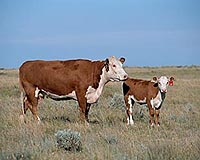 |
Manila (AFP) July 22, 2009 Genetic modification may be the only viable way to produce sufficient quantities of rice in the future as drought, climate change and dwindling acreage impact yields, experts said in a new report. Rice is the staple food of around three billion people and the main challenge facing producers is how to raise yields of the water-dependent crop as 70 percent of the world's food-growing areas turn increasingly parched, said the International Rice Research Institute in its latest quarterly magazine. Biotechnology, the process of modifying the genes of an organism to produce new products, is becoming an increasingly important tool for the Philippines-based institute as it tackles the impact of climate change, IRRI said in its "Rice Today" publication. The institute, based in the university town of Los Banos south of Manila, developed many of the high-yielding varieties of rice during the so-called Green Revolution of agricultural breakthroughs in the late 1960s and early 1970s. Former IRRI director-general Nyle Brady said the institute must use biotechnology to "develop rice lines that efficiently utilise plant nutrients, that tolerate adverse conditions such as drought, and that are resistant to insects and diseases" to reduce the need for pesticides. Brady said he recognised "the political reasons why this is difficult because some countries don't want biotechnology to be used for this purpose. "But the developing countries need the improved crops much more than we do in the United States," Brady added. Gurdev Khush, a University of California professor who was a former senior IRRI scientist, agrees "the environment for accepting genetically modified crops is not as good as it should be." The institute estimates between 15-20 million hectares (about 37-49 million acres) of irrigated rice would be hit by "some degree of water scarcity" by 2025. Areas growing genetically modified crops rose 9.4 percent from a year earlier to more than 120 million hectares across 25 countries last year, it said. Share This Article With Planet Earth
Related Links Farming Today - Suppliers and Technology
 Obama should push China on pork and beef: US senator
Obama should push China on pork and beef: US senatorWashington (AFP) July 21, 2009 US President Barack Obama should press visiting Chinese officials next week to open China's markets to banned US beef and pork exports, Republican Senator Charles Grassley said Tuesday. "I ask that when meeting with the visiting delegation from China next week, your administration raise the issue of China's continued barriers to exports of US pork and beef," Grassley said in a letter to ... read more |
|
| The content herein, unless otherwise known to be public domain, are Copyright 1995-2009 - SpaceDaily. AFP and UPI Wire Stories are copyright Agence France-Presse and United Press International. ESA Portal Reports are copyright European Space Agency. All NASA sourced material is public domain. Additional copyrights may apply in whole or part to other bona fide parties. Advertising does not imply endorsement,agreement or approval of any opinions, statements or information provided by SpaceDaily on any Web page published or hosted by SpaceDaily. Privacy Statement |